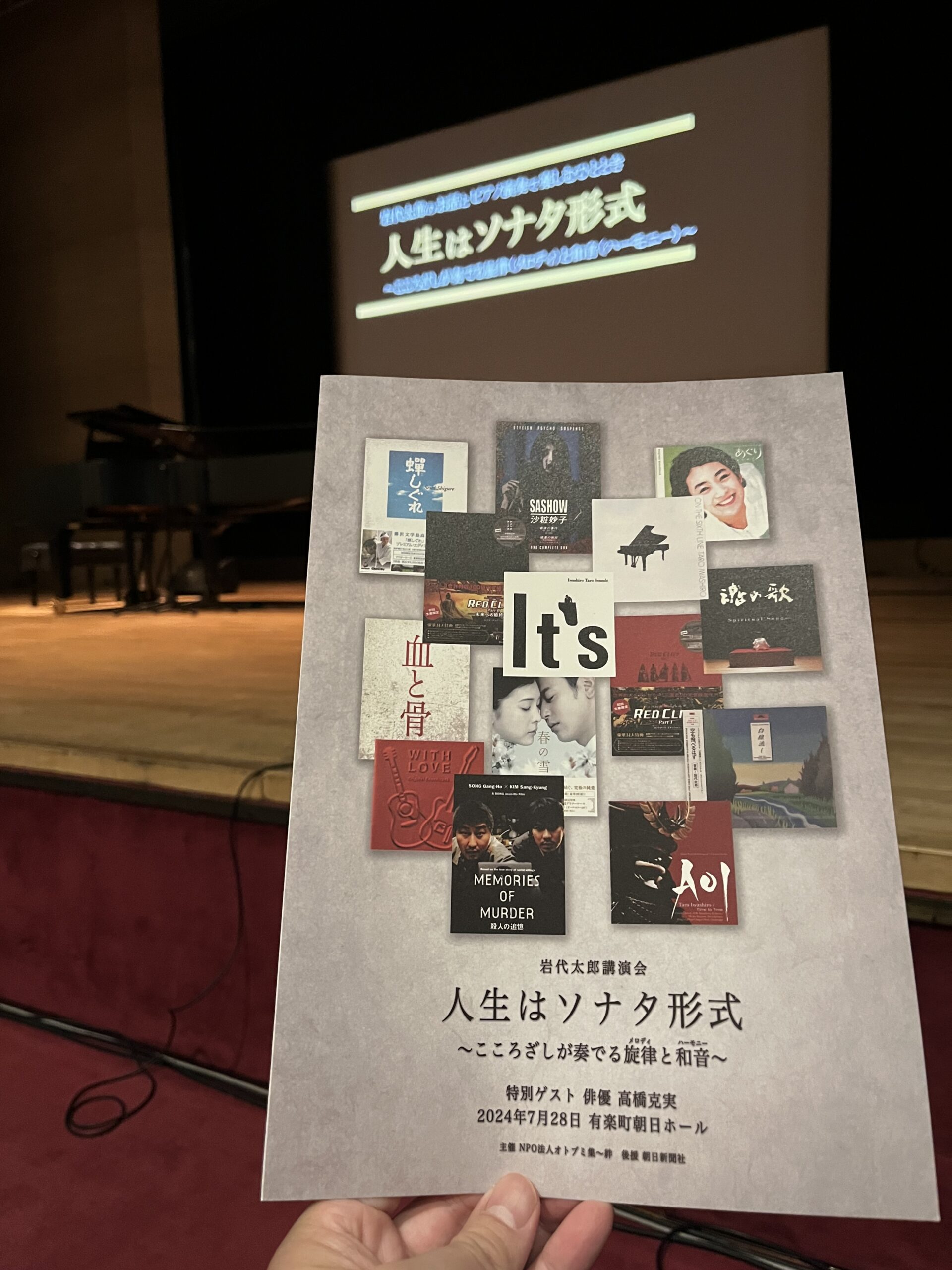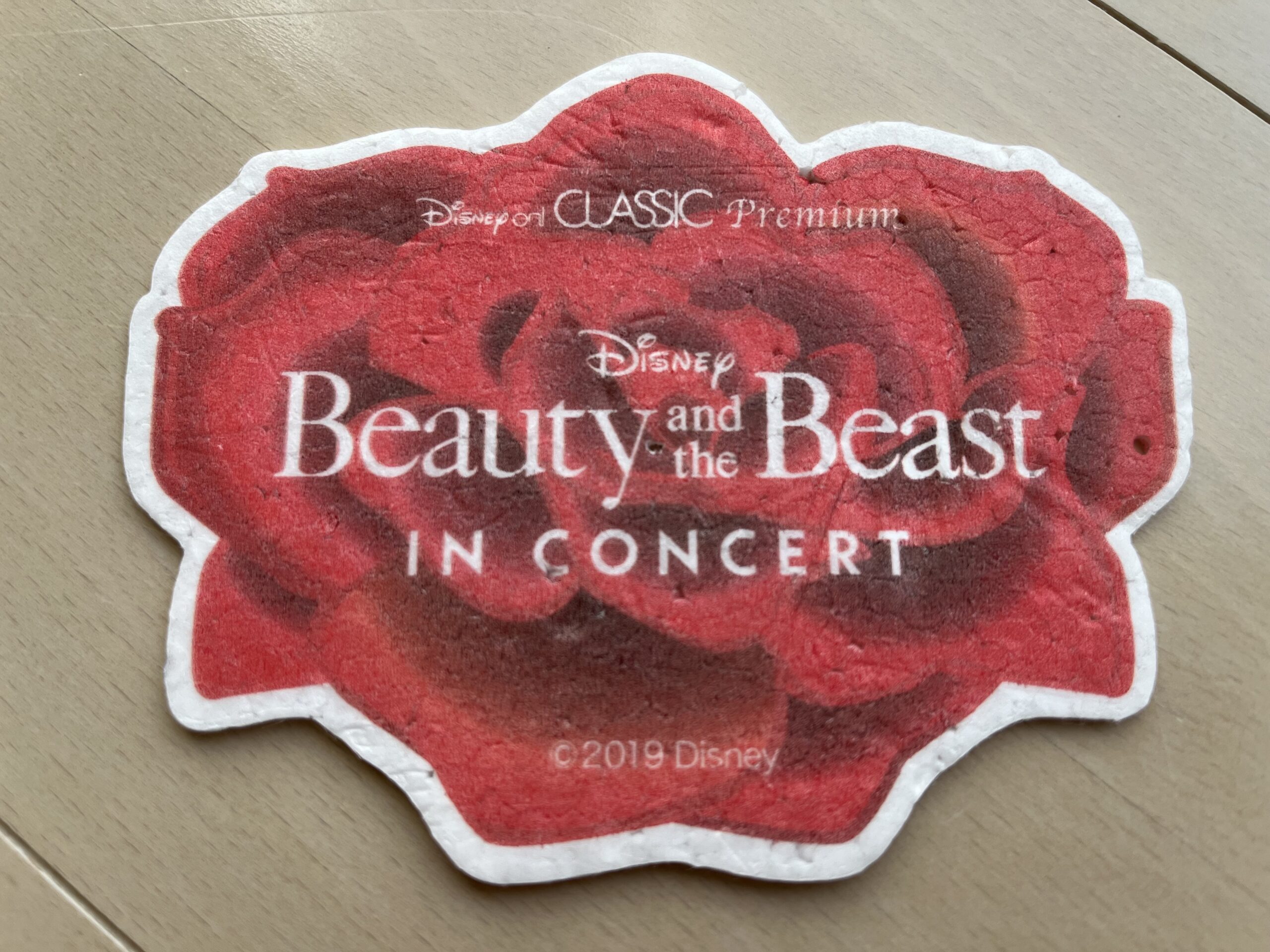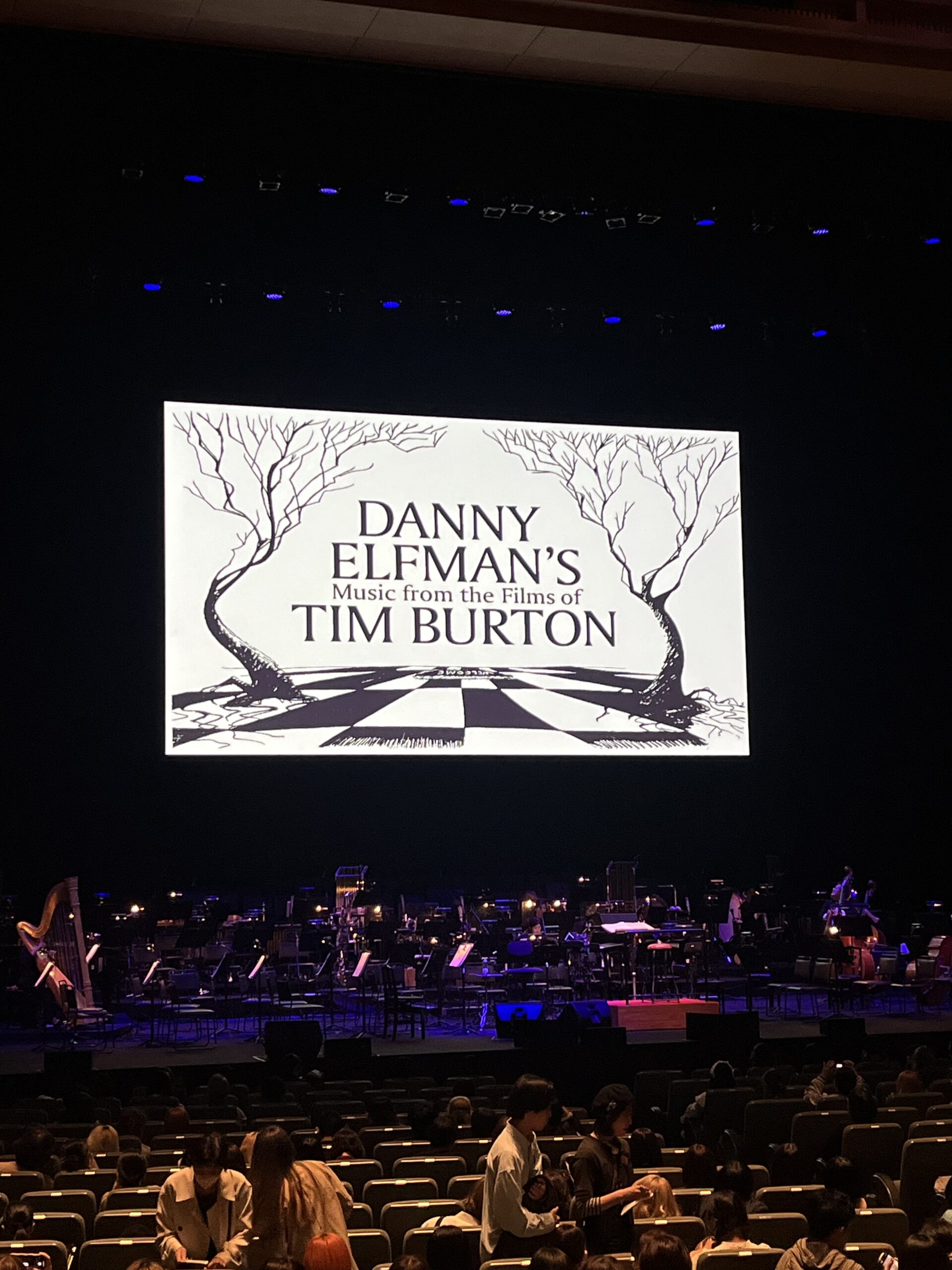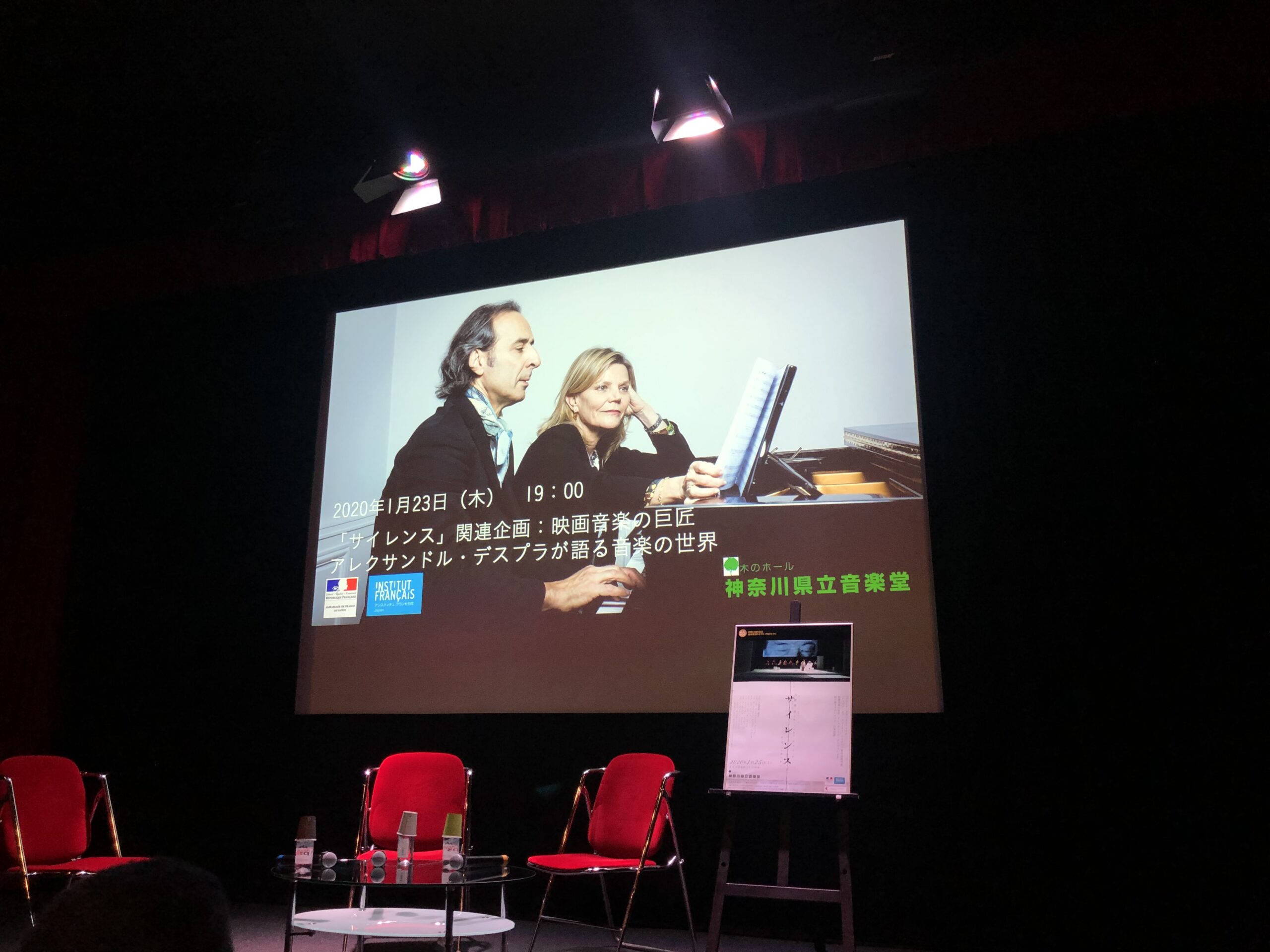LIFE IS IN THE FORM OF A SONATA: THE MELODY AND CHORDS PLAYED BY THE HEART
Music composed and performed by Taro Iwashiro
OTOBUMI texts recited by Katsumi Takahashi
July 28, 2024
Yurakucho Asahi Hall
Tokyo, Japan
(日本語訳はこちらをクリックしてください)
PART 1: INTRODUCTION
Esteemed Japanese composer Taro Iwashiro is back in the concert hall for a special talk and music event chronicling his life work as both a composer and human being trying to make a difference in the world.
PART 2: A FATEFUL DISCOVERY
Before diving into this report, I feel it is necessary to briefly explain how I discovered Iwashiro’s music over fifteen years ago and became one of his biggest fans.
Most of Iwashiro’s fans outside Japan most likely discovered his music through his knockout score to RED CLIFF, the epic historical film directed by John Woo.
But in my case, I discovered him by complete accident in the bargain bin of Shinseido, a once ubiquitous CD/DVD shop found in major cities around Japan.
As was common in my mid-twenties, I would spend almost every day off hunting for soundtracks at the many new and used CD shops around town.
One particular day I walked into Shinseido and was ecstatic* to find a number of bargain bins scattered around the store. Every item was new and marked down to ¥500 a pop, so I was quite certain that I’d be going home with a pretty big haul.
* because I was a poorly paid English teacher at the time!
I immediately found a few gems in the bins like Alexandre Desplat’s HOSTAGE, Aaron Zigman’s THE NOTEBOOK, and Zbigniew Preisner’s THREE COLORS: WHITE.
As I continued to flick through the CDs in each bin, I chanced upon a soundtrack with an eye-catching cover image of the ocean titled PLANET OF OCEAN by Taro Iwashiro.

Despite not knowing who “Taro Iwashiro” was, I guessed the music would at least be interesting since most scores about the ocean tend to be big and symphonic, just the way I like it. And at ¥500, who could refuse?
Another striking CD jacket appeared during my search, the soundtrack for the NHK* TV Taiga drama series AOI, which also had Iwashiro’s name on the cover.

With its picture of a menacing samurai helmet on the jacket, I also guessed this would be a good listen as samurai films tend to have thunderous scores with lots of percussion. Again, I thought it would be something right up my alley, so I of course added it to my rapidly growing “to buy” pile.
* NHK = Nippon Hoso Kyokai, a Japanese public broadcasting service.
I ended up walking away from Shinseido that day with about fifteen to twenty soundtracks – not a bad haul!
Anyway, when I got home and started listening to PLANET OF OCEAN, I was immediately taken aback by the music – “what is this?” I thought. Written for orchestra and solo piano, the music had HUGE size – you could literally feel the depths of the ocean around you with its many wonders and sense of timeless romance. When the piano made its first appearance in the opening track, shivers immediately crept up my spine and did not let up until the very end of the piece.
Stunned by what I had just heard, I moved on to my next Iwashiro purchase, AOI, where I was again spellbound by the incredible music. The opening track, “Time Of Destiny,” was filled to the brim with emotion and classical romanticism – something I certainly did not expect in the soundtrack for a samurai TV series.
I mean, was this really written for a TV series? It was simply unfathomable because the music was way too good for TV. In fact, this music would have sat comfortably in the latest Hollywood epic.
I then thought, “why is this guy NOT writing music for Hollywood blockbusters?” I shook my head in confusion then as I do today.
In any case, this is how I discovered and became immediately hooked on the music of Taro Iwashiro. I have since gone on to collect almost everything he has released commercially on CD, yet unbelievably had never had the opportunity to see him perform live in concert… until now.
PART 3: A SPECIAL EVENT
Fifteen years after that fateful discovery in the Shinseido bargain bin, I can now finally say that I have seen, heard and experienced the wonder that is Taro Iwashiro and his incredible music.
「人生はソナタ形式~こころざしが奏でる旋律と和音」, which in English roughly translates to “Life is in the form of a Sonata – the melody and chords played by the heart,” was a special two-hour talk and music event hosted by Iwashiro this past July at Yurakucho Asahi Hall in central Tokyo.

Split into two halves, it aimed to provide an overview of his life, his music, and his musings on finding purpose in life.
Iwashiro would share both serious and amusing anecdotes about his film and TV scores before short clips from the original soundtrack albums were played over loud speakers. He also performed live a handful of pieces on piano, captivating the audience with his heartwarming melodies and delicate piano playing.
He concluded the event by introducing two pieces from his OTOBUMI project, with renowned Japanese actor Katsumi Takahashi reciting specially written text while Iwashiro accompanied him on the piano.
PART 4: A SMALL NOTE ABOUT LANGUAGE & A BIG THANK YOU
Before going into details about the talk and music event itself, I must openly admit that although I’ve lived in Japan for many years, my Japanese comprehension is not great, especially when it comes to deeply personal and abstract topics like the purpose of music, or how to find purpose or value in life.
Nevertheless, I did my best to understand what Iwashiro was saying without the aid of a translator or translation app.
In my report that follows I’ll focus on the parts that I clearly understood while leaving out the things I wasn’t sure about.
I must also use this space to say a huge THANK YOU to Mr. Hideto Watanabe, a close friend of Taro Iwashiro, who helped clarify and confirm many things that were said at the concert. I thought I had understood most of the key things, but I was quite wrong on some points!
This report really would have been much less accurate and insightful without Watanabe-san’s generous support, so thank you again Watanabe-san – I definitely owe you a beer (or two 😉)
PART 5: OPENING THE MUSIC AND TALK EVENT
After some pleasant introductory words and background from the MC, Iwashiro swiftly graced the stage to the warm and sustained applause of the audience.
He immediately lightened the mood with his calm demeanor and dry humour.
He then started to explain the concept behind the title of the day’s event – that life is in the form of a Sonata – and how it categorized each part of his life. This would be the roadmap for the rest of the talk and music event.

Before starting to discuss selected pieces from his TV and filmography, he showed a series of numbers on a large screen and asked the audience to remember these for the end of the event. These are the numbers he showed:
1101
0824
Not knowing at all what they signified certainly piqued our curiosity!
And with that, the first half of the program began.
PART 6: PROGRAM FOR THE 1st HALF
CHILDHOOD
After showing an adorable picture of himself when he was an infant, he mentioned being enamored with Beethoven’s “Moonlight Sonata” when he was ten years old and wanting to be able to play it. He told this to his father who responded by giving him a copy of Beyer’s “Elementary Method for the Piano.”
With that, Iwashiro sat down at the piano on stage and played the first few bars of “Moonlight Sonata.”
He then stated that at fifteen years old he decided that he wanted to become a composer.
UNIVERSITY DAYS
As a university student studying music composition, he admitted that he had taken on part-time jobs that had no relation to music as he knew it would be his last chance to do so before pursuing his career as a composer. After his first job as a waiter at a family restaurant, he had various jobs that included a trainee sales staff member in Ueno’s famed Ameyoko market (but got fired after only a week), a cleaner at a love hotel in Shibuya, and even a late-night security guard! These were memorable life experiences for him.
SOWING THE SEEDS OF GREATNESS
In his third year at university, he thought of and composed what kind of music he’d write if he were ever given the chance to compose music for Japan’s prestigious NHK TV Taiga dramas and morning drama series. It was actually the very first orchestral music he had written in his life.
And believe it or not, one of those pieces of music formed the basis for his score for the NHK TV Taiga drama series AOI, which I mentioned earlier. To learn that the seeds of this incredible score were sown when he was still a university student was truly astonishing and testament of his talent from an early age.
The gorgeous violin-led main theme from AGRI, an NHK morning drama chronicling the life of a hairdresser, was another piece that had originally been developed in his university days.

Lilting, nostalgic, and full of life, this is right up there with Iwashiro’s best work.
WITH LOVE
Iwashiro recalled that his soundtrack album for WITH LOVE, a Fuji TV drama about internet romance, had attracted sales of over 250,000 units or the equivalent of the capacity of five Tokyo Domes!
And with that he sat down at the piano and, with eyes closed, performed WITH LOVE’s iconic and instantly memorable love theme, “Link to Fate.” To see Iwashiro, its original composer, recreate the music live at the piano was a true honor and privilege. I get goosebumps just thinking about it again.
1999: A BANNER YEAR
In addition to the high number of units sold for WITH LOVE, the year 1999 marked an incredibly successful year for Iwashiro. He was the first composer to have scored both an NHK TV Taiga drama series (AOI) and a “Monday at 9 p.m.”* drama series (Fuji TV’s ICE WORLD) at the same time. These were major achievements that left him feeling proud and on top of the world.
* A highly coveted time-slot that showed the most popular TV series of the day
MY OWN LIFE
This was another beautiful piece that Iwashiro played in its entirety on the piano. Bittersweet, nostalgic, and deeply romantic, I was so glad to hear this piece live.

As the piece progressed, Iwashiro humorously interrupted throughout to tell us that the piece hadn’t finished yet. His self-deprecating wit only made us love him and his music more.
HOLLYWOOD & RED CLIFF
I was quite surprised and saddened to hear that it was extremely difficult for Iwashiro to break into Hollywood in the early noughties simply because Hollywood thought he was a “TV composer.” If only they’d heard scores like AOI and AGRI!
This all changed one day when his agent, a Frenchman in France’s Ministry of Culture whose Japanese wife worked in the film industry, contacted him and brought him an opportunity to score John Woo’s historical epic, RED CLIFF.

On visiting the set of RED CLIFF one day, Woo told Iwashiro to look at the many different people working on set that included people from China, Mongolia, America and Japan – countries that had fought each other in wars in the last fifty or so years. Woo continued by stating that while RED CLIFF can be seen as a war film, the real theme or intention was to show the unity of people. Because despite the wars of the past, people could still come together, work and create something together now; and that is the beauty of people.
SPIRITUAL SONGS
The Great East Japan Earthquake that happened on March 11, 2011 was, and continues to be, a deeply sad and difficult moment in history for many people in Japan.
Iwashiro and seven of his composer friends wanted to do something to help the victims of that terrible tragedy, so they banded together and produced a CD of original music that focused on the importance of the soul – the souls of those who died that day, the souls of those who survived and are now working hard to rebuild, and the new souls of those born after the disaster. With short text recited by famed actor Koji Yakusho, all sales from the CD were donated to the city of Ishinomaki, which was severely damaged by the earthquake.

Iwashiro explained that for his particular piece on the album, “Brightness of Soul, together with F (魂の響き、それはFと共に),” the letter “F” is deeply significant because it stands for things like family, friends, and forever.
OTHER MUSIC
Iwashiro also provided anecdotes and original music clips from the following soundtracks and non-soundtrack albums:
- Taeko Sashow’s Last Case (a Japanese TV drama about a police detective)
- Memories of Murder (from famed Korean director Bong Joon-ho)
- Blood and Bones (starring Beat Takeshi)
- “Miss Encore” from On the Sixth Line (a solo piano album)
- It’s (his first album)

PART 7: PROGRAM FOR THE 2nd HALF
The purpose of the second half was to explain and showcase Iwashiro’s special NPO project, OTOBUMI, while also talking about the later stages of the “Sonata form” of his life.
OTOBUMI
To give it its full title, “Otobumi-shu – Kizuna (オトブミ集~絆),” which Iwashiro considers his life’s work, is a project in which actors and other entertainers read aloud messages about the importance and wonder of life with Iwashiro’s original music playing in the background.
All pieces are available for free on the official OTOBUMI website, with the 2024 edition set for release in November this year.
Two pieces from OTOBUMI were performed live during the event with heartfelt sincerity by famed actor and friend of Iwashiro, Katsumi Takahashi.
The first piece, “Your Life, Everyone’s Life (「自分の命、みんなの命」),” with text written by Yuko Shirakawa, a nurse from Doctors Without Borders (Médecins Sans Frontières), was both heartbreaking and hopeful while reaffirming the preciousness of life.
You can hear the original recording here with actress Yuki Saito narrating.
The second piece, “Life (「いのち」),” with text written by manga artist Tetsuya Chiba, was another deeply affecting piece about the horrors of war and the preciousness of life. It will be released in the 2024 edition of OTOBUMI, which you will be able to find on the official website at a later date.
A POST-OTOBUMI CHAT
As the two OTOBUMI pieces were so emotionally affecting, something light-hearted was needed to change the mood.
Enter Iwashiro and narrator Takahashi, who both took a seat on stage and began to have a casual chat that quickly turned into a short comedy segment.

At one point, Iwashiro started to wipe his face with a small hand towel, the type that is often given to customers at a Japanese pub or tavern as a way of freshening up. Takahashi then snapped and reminded Iwashiro that they weren’t in a pub! We all couldn’t stop laughing, and I’m sure I wasn’t the only one that wanted this humorous on-stage chat to continue for the rest of the afternoon.
THE FUTURE
After Takahashi left the stage, Iwashiro took to the microphone to talk about the future. The discussion was now notably more serious and rooted in philosophy, so it was becoming increasingly more difficult for me to follow the Japanese.
Nevertheless, there was one thing I gleaned from this final part, and that is that Iwashiro thinks it would be an honourable thing to write a requiem for his own funeral.
PART 8: CLOSING THE CONCERT
To conclude the day’s event, Iwashiro brought back those numbers he showed at the beginning:
1101
0824
He then asked the audience what they thought they meant. As there was no one brave enough to raise their hand, Iwashiro went on to explain their meaning: they were simply the dates of significant events in his music calendar.
1101, or November 1st, refers to the release date of the next set of OTOBUMI pieces.
0824 refers to a certain event that I shall not reveal here. I’ll leave that to Mr. Iwashiro when he feels the timing is right 😊
Mysteriously presenting these numbers at the beginning of the concert was most certainly a novel but highly effective way of making us remember these dates!
CFA
Iwashiro then put up a different slide showing the letters of the alphabet from A to G. He then asked random members of the audience to choose a letter. I was confused as to where this was heading, but I soon found out: he would compose – on the spot – a piece of music based on the letters (i.e. notes) chosen and in the order they were chosen. Nobody knew beforehand that these letters represented music notes!
After what felt like seconds, Iwashiro started to create and play a completely new melody at the piano! It was a beautiful melody that was delicately performed while showcasing his limitless talent. It was truly amazing.

It was also the last piece of music for the event and a perfect way to finish.
A GROUP PHOTO!
After a lengthy applause from the audience, Iwashiro and Takahashi beckoned the audience to join them in a huge group photo. Iwashiro jokingly told those that didn’t want to be in the photo to assume brace position to avoid the camera!
I can see myself in this photo! I’m sitting far left in the first row next to the gentleman with the white towel* around his neck.
* not the one Iwashiro used to wipe his face!
PART 9: SOME FINAL COMMENTS
While it was hard to fully comprehend Iwashiro’s messages about life and music due to my less than perfect Japanese skills, it was still an entertaining and emotion-filled afternoon that felt like spending time with an old and trusted friend.
Iwashiro is not only a talented composer, but also a skilled raconteur whose anecdotes were funny, insightful, and above all, honest. I certainly left the concert that day appreciating the man and his music even more.
It is truly unfortunate then that Iwashiro does not have the same level of global adulation or recognition of his peers like Ryuichi Sakamoto (RIP) and Joe Hisaishi.
You could say that he’s been somewhat unlucky. While he’s worked with highly respected and famed directors like Bong Joon-ho and John Woo, he just hasn’t had those collaborative partnerships with directors that have mass global appeal like Steven Spielberg, Hayao Miyazaki or Christopher Nolan. If he’d had one of these partnerships earlier in his career, things would have turned out much differently for him.
But I suspect his life has turned out just the way he’s wanted: full of challenges, triumphs and lessons that have made him the fine composer and human being he is today.
I only hope that Iwashiro can continue exploring that which gives him meaning while continuing to compose and share his thought-provoking music to help inspire a better world.
PART 10: OVER TO YOU
Did you also go to this concert? How did you like it?
And what did you think of my report? Feel free to comment below or reach out to me directly in the “Contact Me” section.





3 thoughts on “Life is in the form of a Sonata (2024)”